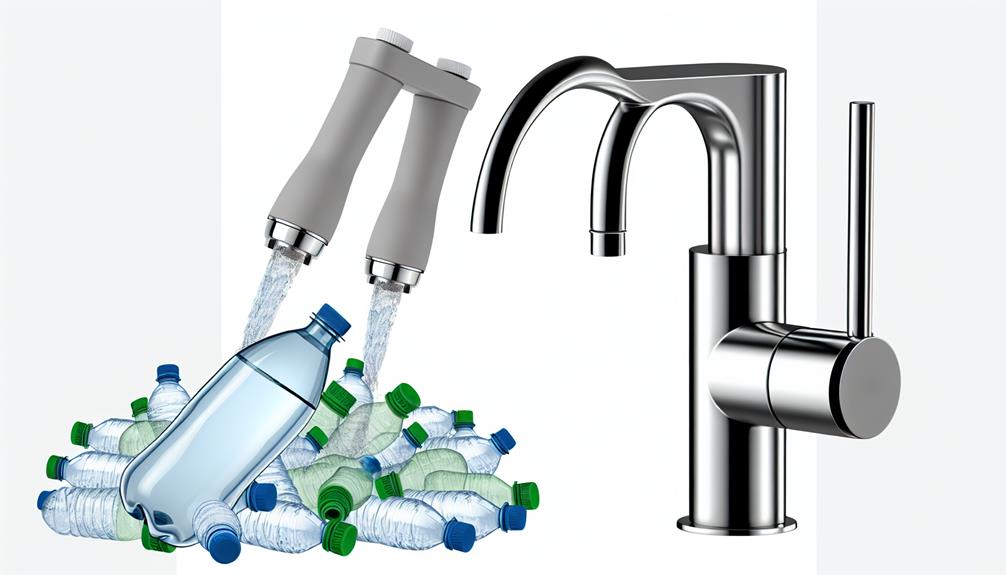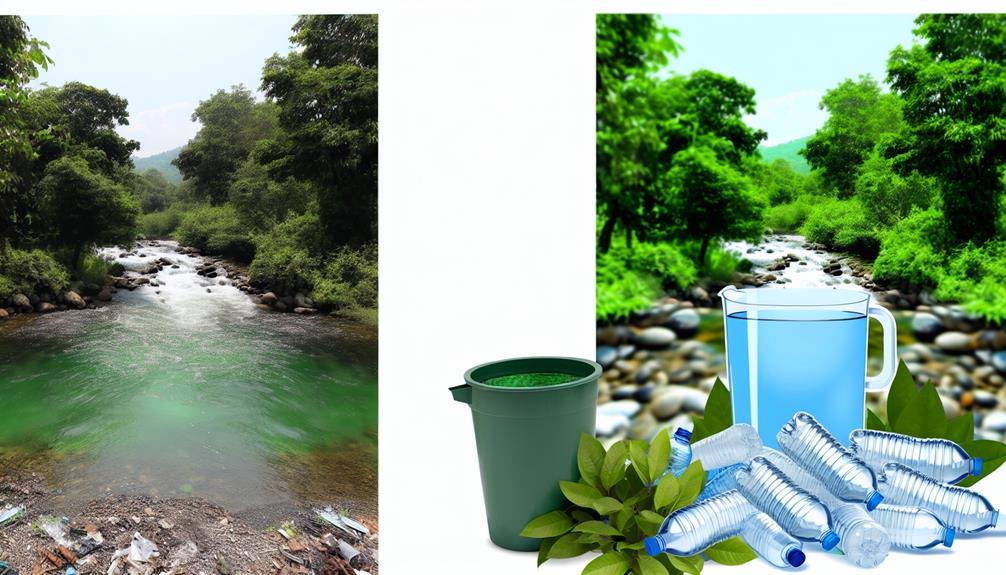As you reach for a glass of water, consider this: the purity you enjoy may well be the scarcity another faces. Filter systems stand at the crossroads of excess and necessity, quietly underpinning efforts to conserve our most vital resource—water.
You're likely familiar with the direct benefits of water filtration, such as improved taste and removal of contaminants, but have you considered the broader implications for global water conservation? By minimizing the reliance on bottled water, filter systems not only reduce plastic waste but also curb the environmental impact of manufacturing and transporting bottled beverages.
Moreover, these systems extend the life of our appliances by preventing scale buildup, further reducing consumption. The role of filter systems in water conservation is multifaceted, and as you turn the tap, you're part of a larger narrative—one where every drop counts and the choices you make can resonate well beyond the confines of your kitchen.
Let's explore how the simple act of filtering water can ripple outwards, contributing to a more sustainable future for all.
Minimizing Water Wastage
To effectively cut back on water wastage, installing water filtration systems in homes and businesses not only curtails the reliance on bottled water but also diminishes the environmental toll of plastic waste. These systems contribute to water conservation by ensuring the water you use is free from contaminants, which can otherwise lead to the disposal of large quantities of water. By integrating water filtration systems, you're participating in a broader effort to conserve water resources for sustainable agriculture and other critical uses.
Water filters reduce the need for chemical disinfectants, which often necessitate additional water to rinse away residues, further helping to conserve water. Moreover, the filtration process itself is designed to maximize efficiency in water consumption. By using filters, you're ensuring that every drop of water is purified and used to its fullest potential.
Adopting reusable water bottles in conjunction with water filtration systems is a practical approach to conserving water. This not only helps save water but also significantly cuts down on the production of single-use plastics, thereby reducing environmental pollution. As you minimize your water consumption and reliance on bottled water, you contribute to a vital cycle of water conservation that benefits both the planet and future generations.
Enhancing Appliance Efficiency
Upgrading to high-efficiency appliances significantly cuts down on water use and plays a crucial role in water conservation strategies. When you install water purifiers or advanced water filtration systems, you're not just ensuring access to cleaner water but also enhancing the performance and lifespan of your appliances. Filtration is one key method that can prevent sediment and scale build-up in water heaters, leading to more efficient operation and less energy consumption.
Water Filtering Helps Save not only the precious water supply by reducing the amount needed for various tasks but also minimizes the energy required to heat filtered water. Since filters use advanced technologies to remove impurities, appliances like dishwashers and washing machines can operate more effectively with less water—translating to reduced utility bills and helping you reduce your carbon footprint.
Additionally, filtered water can improve the efficacy of soaps and detergents, meaning you'll need less product and less water to achieve the same cleaning results. By Installing Water filtration systems, you're making a direct impact on both water and energy conservation.
Reducing Plastic Bottle Use
Implementing water filters in households and workplaces significantly diminishes the reliance on single-use plastic bottles, offering an environmentally responsible way to stay hydrated. When you choose water filters over bottled water, you're not just ensuring access to clean water; you're also contributing to a larger movement to reduce plastic waste.
Here's a closer look at how water filters help:
- Promote Environmental Sustainability
- By reducing the demand for plastic water bottles, filters help lower the production of plastic, thereby mitigating its environmental impact.
- Water filters lead to less plastic waste ending up in landfills and oceans, preserving ecosystems.
- Encourage Healthier Lifestyles
- Filters ensure ready access to clean water, encouraging the use of reusable metal or glass bottles.
- By adopting water filters, you're more likely to stay hydrated without the guilt associated with plastic pollution.
The technical analysis shows that water filters are an effective tool in cutting down the use of single-use plastic, which is notorious for its adverse effects on the environment. As you move away from plastic bottles, you not only reduce your environmental footprint but also join a collective effort in preserving our planet's resources.
Lowering Energy Consumption
Beyond reducing plastic waste, adopting energy-saving strategies is crucial for businesses looking to lower their overall energy consumption.
Water filtration systems, particularly those employing reverse osmosis (RO), play a significant role in this context. RO systems utilize a semipermeable membrane to remove impurities from water, but the process can require a considerable amount of energy, particularly in pressurizing water through the membrane.
However, advancements in filter system design have led to more energy-efficient models that reduce the amount of energy required for operation. By integrating such systems, you're not only ensuring eco-friendly water usage but also contributing to sustainable living by saving the environment from excessive energy expenditure.
Implementing energy-efficient tools and encouraging eco-friendly practices among employees can further enhance the benefits of filter systems. For instance, using energy-efficient pumps in water filtration setups can dramatically decrease energy consumption.
Moreover, adopting eco-friendly practices, such as routine maintenance of equipment and optimizing system operations, ensures that the filter systems run at peak efficiency, which is beneficial to the environment.
Supporting Sustainable Water Management
Regularly integrating water filtration systems into our infrastructure not only ensures a safer water supply but also fortifies sustainable water management practices essential for environmental conservation. By utilizing these systems, you're actively engaging in the preservation of vital water resources and mitigating environmental pollution.
Here's how these filtration systems play a pivotal role:
- Protecting Public Health and Water Sources:
- *Removal of Contaminants*: Filters eliminate harmful pathogens and chemicals, ensuring that the water is clean and safe for consumption.
- *Reduction of Plastic Waste*: By diminishing the reliance on bottled water, you contribute to less environmental waste.
- Enhancing Environmental and Economic Sustainability:
- *Conservation of Aquatic Ecosystems*: Cleaner water means healthier aquatic life and ecosystems.
- *Cost-Effectiveness*: Investing in water filtration systems results in long-term savings, reducing the need for costly bottled water and temporary solutions.
Water filtration systems are instrumental in providing safe drinking water while also saving water through their efficient processing capabilities. They support sustainable agriculture by supplying clean water for irrigation, which is crucial for food production and ecosystem health. Additionally, minimizing the use of chemical disinfectants aligns with a sustainable lifestyle, rendering these systems a cornerstone of modern, eco-friendly living.

